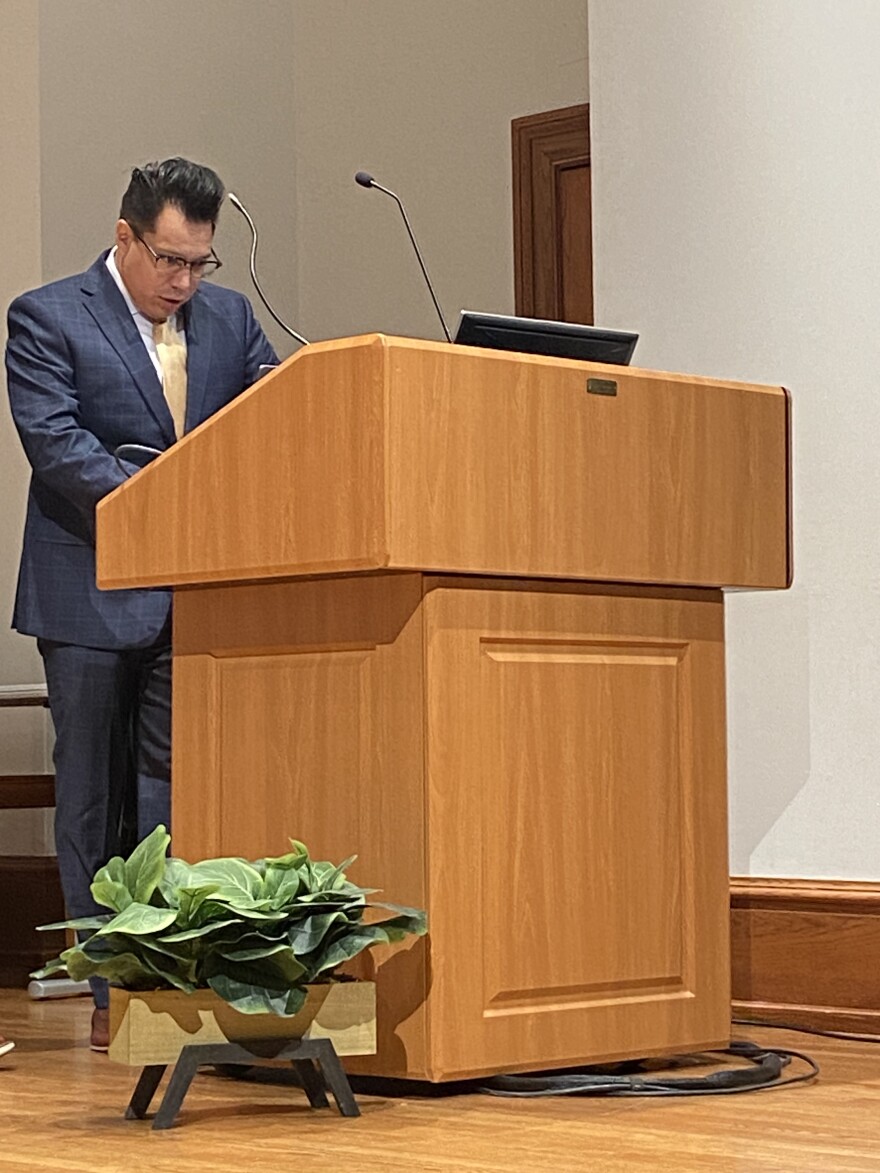Anthony Anaya-Gorman traveled to USD to speak to students and community members about his grandfather’s experience as a Navajo Code Talker in World War II.

In 1942, 29 Navajo men were sworn into the Marine Corps. They became influential to United States communication tactics in the Pacific Theater.
The group of men translated and relayed sensitive information through the Navajo language. From that action came the group title of Navajo Code Talkers.
They started with 200 terms and by the end of WWII they had established and used 478 new words in the code.
“What makes this impressive is they had to memorize this,” said Anaya-Gorman. “They weren’t allowed to have field books out where they were, so they were often brought back to the coast lines to go ahead and learn and refresh all of this. And again, they could do this in 20 seconds and under two minutes which is faster than any other code that the military was using at the time.”
Besides being behind a large linguistic feat for the Navajo language, the code talkers altered the view of Native American language at the time.
Across the nation Native American children were being sent to boarding schools designed to assimilate them to the European culture. Many of those schools did not allow the children to speak their native languages.
“That’s why I think looking at the code talker story overall is [important]. Asking him to go from don’t speak your language you’re going to get in trouble for it, to now we need you to do it,” said Anaya-Gorman.
The presentation took place the week of Veteran’s Day and was sponsored by USD’s Native Student Services and Veterans Resource Center.


